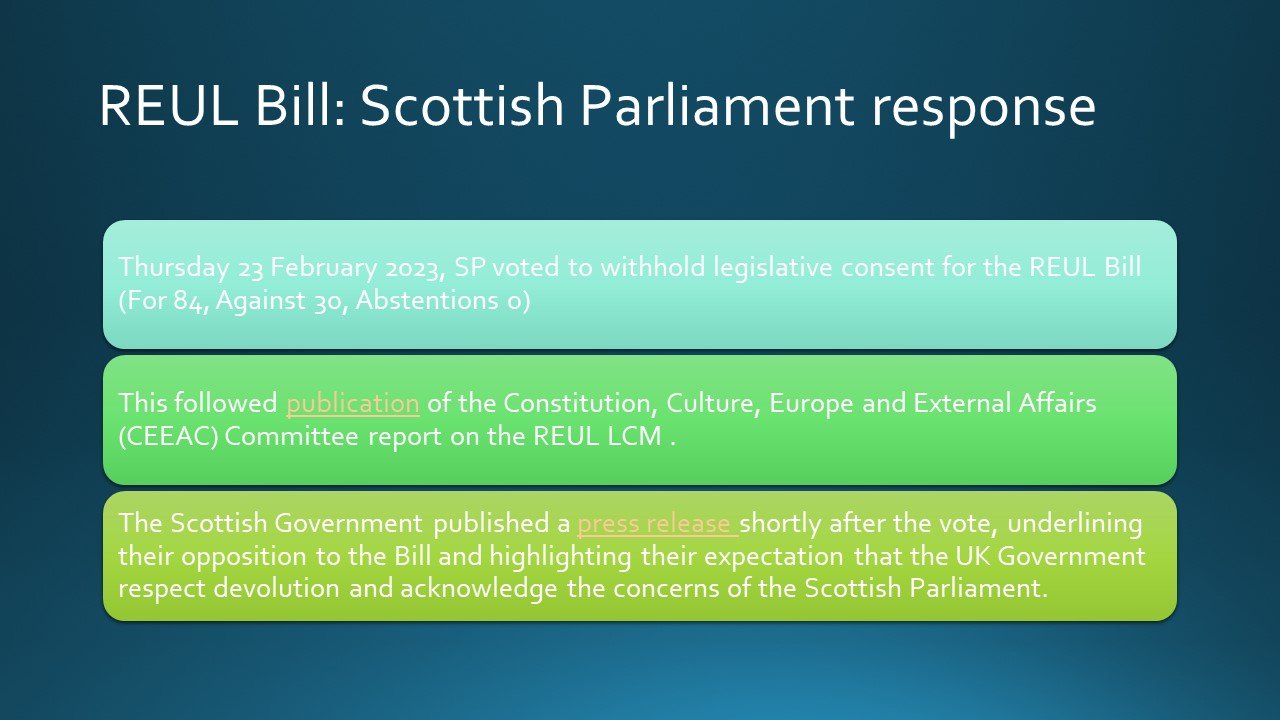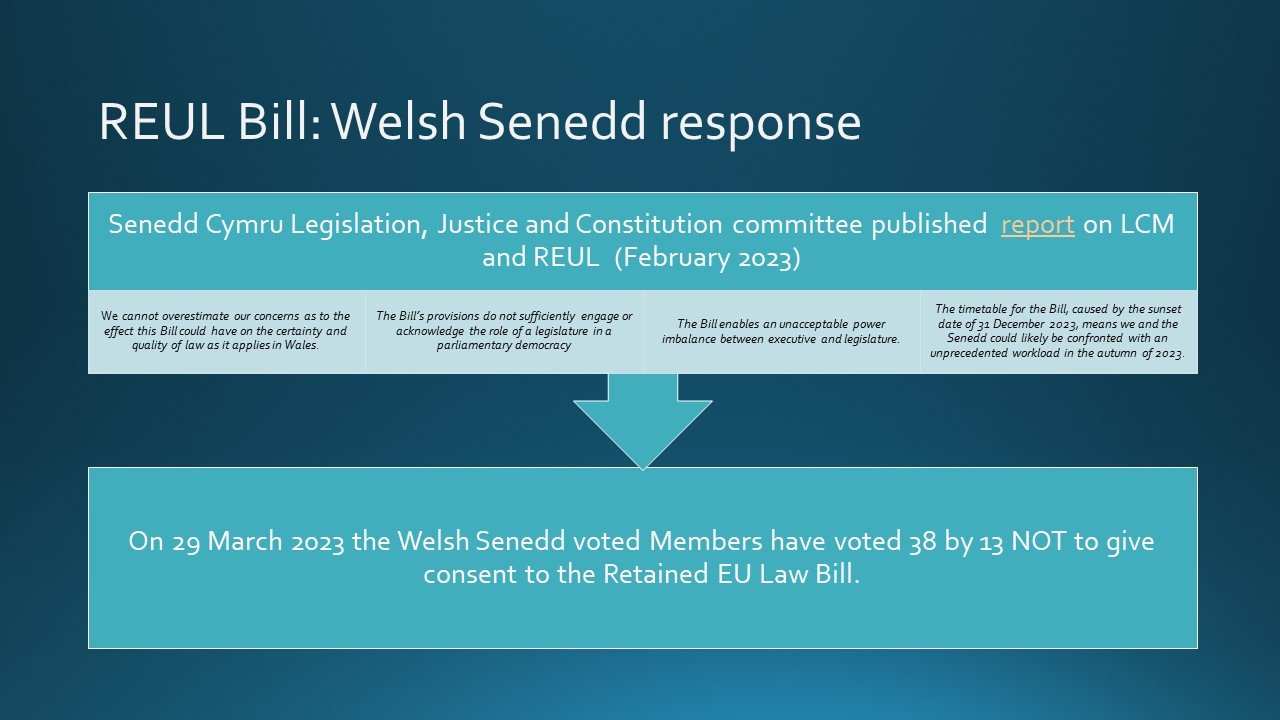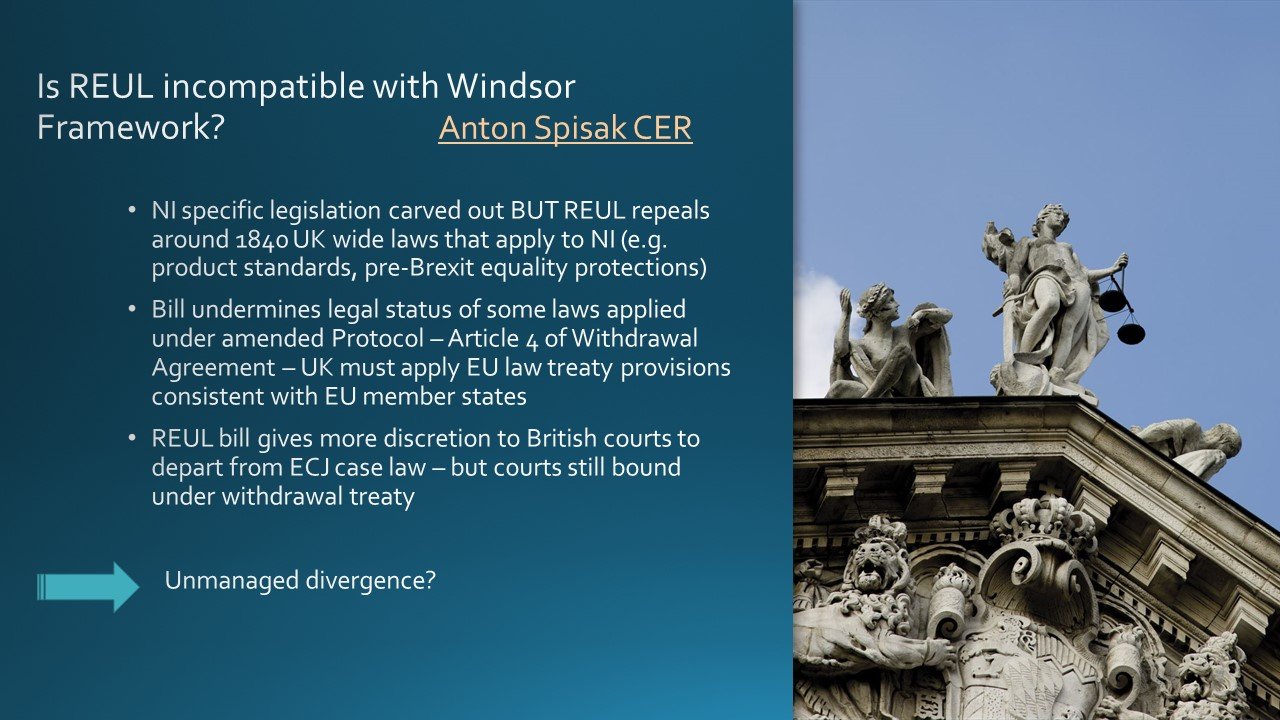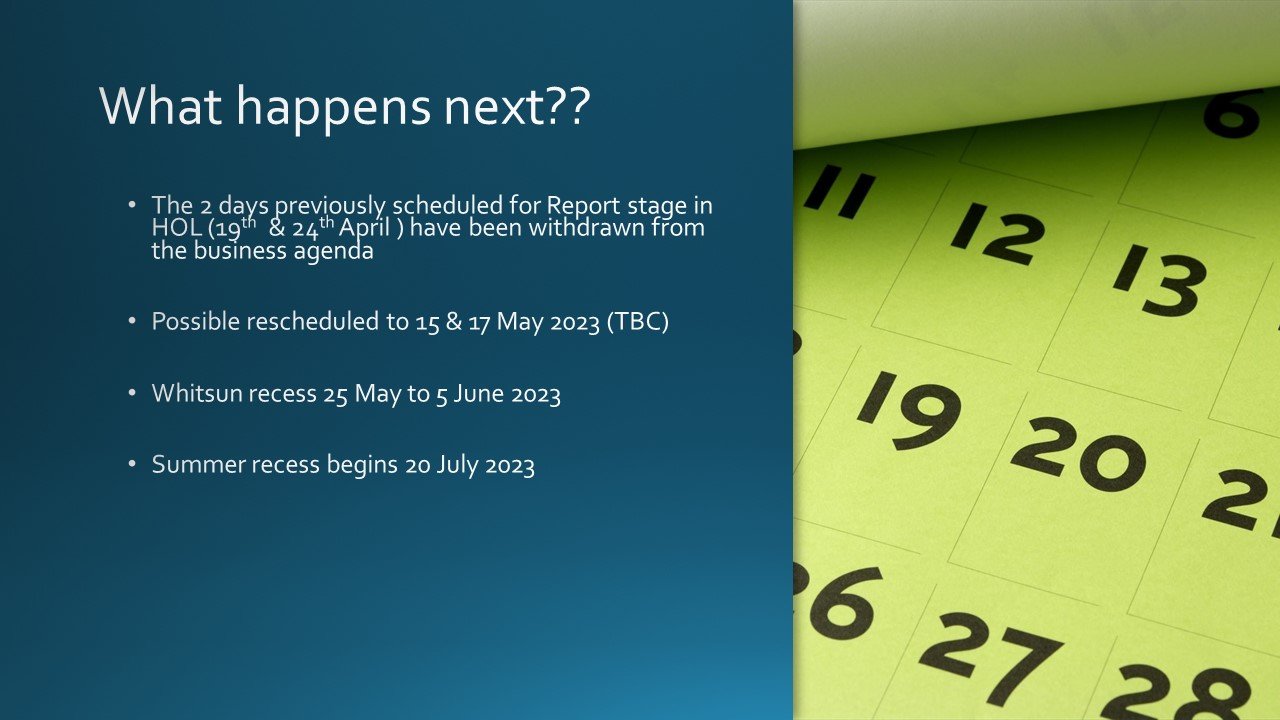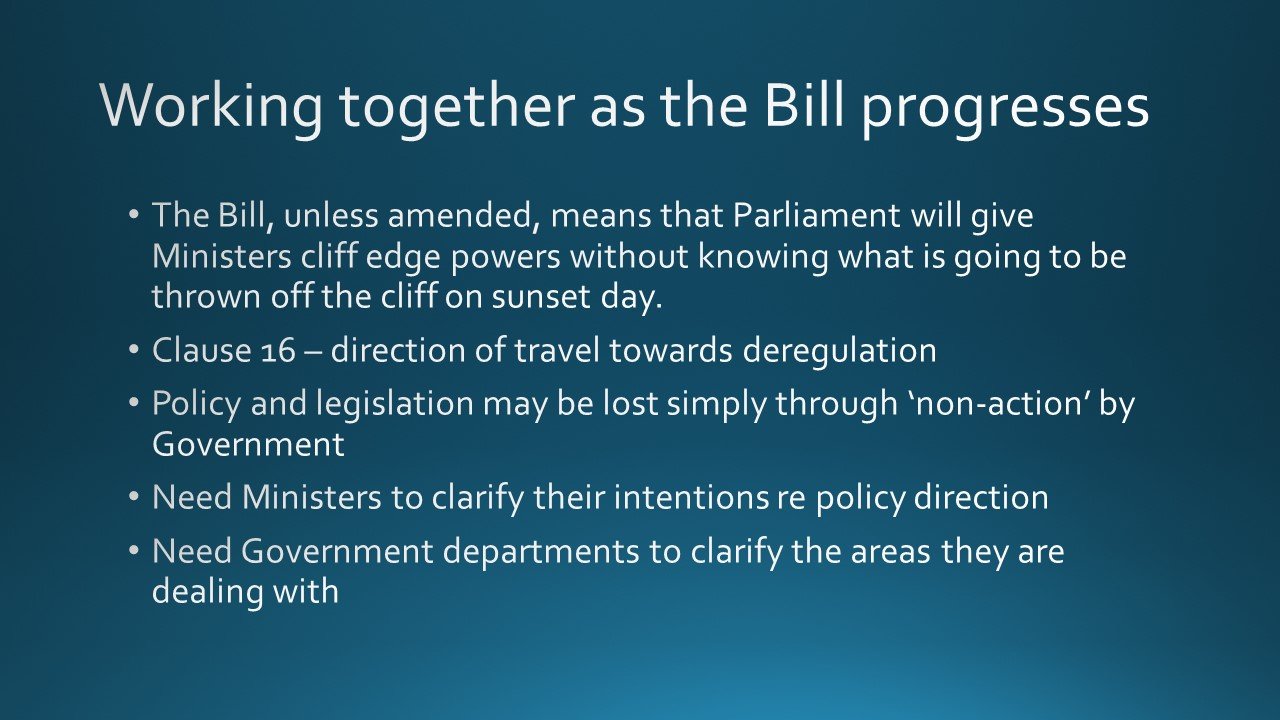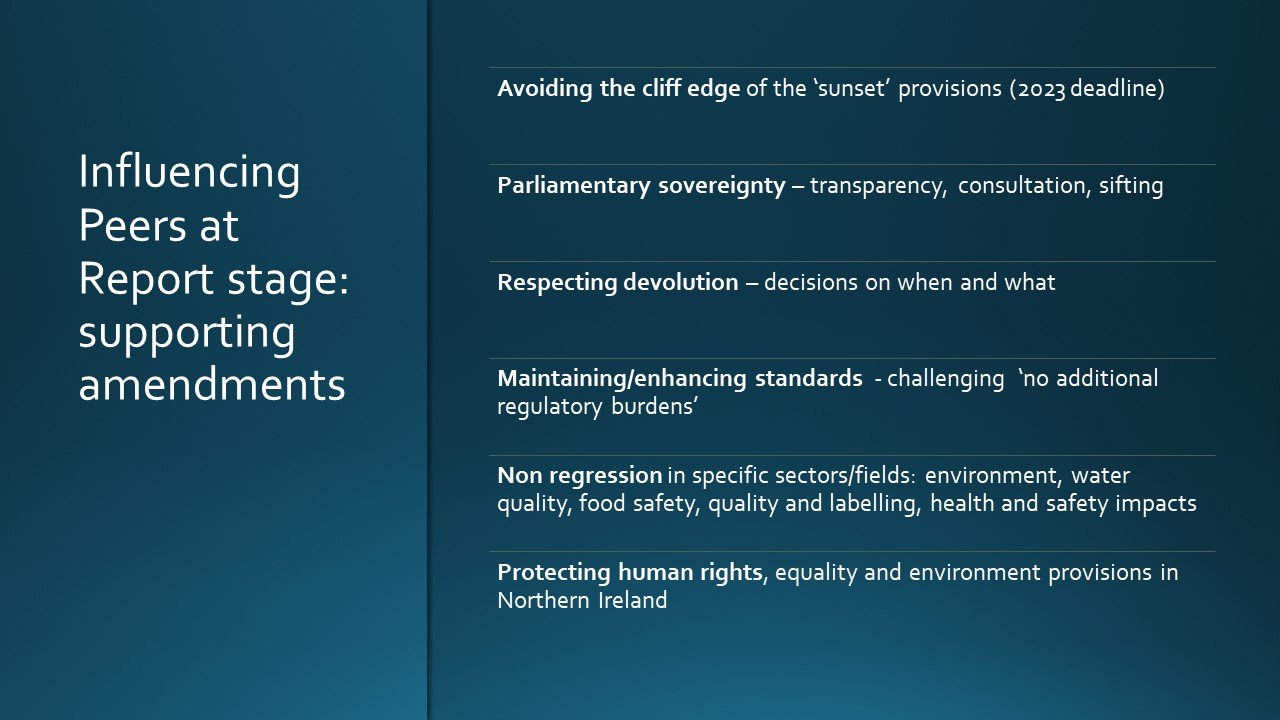Rt Hon Kemi Badenoch
Secretary of State for Business and Trade
1 Victoria Street
London SW1H 0ET
17 May 2023
Dear Secretary of State
Retained EU Law (Revocation and Reform) Bill
We write as the Civil Society Alliance representing the views of over 50 civil society groups from across the UK. We welcome the UK Government’s announcement that it intends to reform REUL, rather than automatically revoke all of it at the end of 2023. The reform of REUL should be an excellent opportunity to strengthen our laws and protections. This letter sets out some of our key concerns to ensure that our rights and standards are not lost or watered down but strengthened.
Ensure that we maintain and enhance a high standards UK
A core objective of the Civil Society Alliance is for a high standards UK, a vision shared in the 2019 Conservative Party manifesto, including in relation to workers’ rights, environmental protection, and consumer rights.
The powers included in the bill to reform REUL, particularly those in clause 16, will continue to create regulatory uncertainty. Well-designed regulation that benefits the economy and ensures fair competition is essential for building public trust, particularly given the rapid acceleration of technological change. Clause 16.5 of the bill appears to do the opposite by precluding the raising of standards in future that would ‘increase the regulatory burden.’
Continue to publish and consult on rationale and plans for REUL
Whilst we welcome the removal of the current sunset in the bill, we would like to understand the decision-making process used to identify the 587 pieces of subordinate legislation and retained direct EU legislation to be scrapped and the underlying justification for their inclusion.
The UK Government should demonstrate its commitment to transparency and a high standards UK by continuing to publish details of further aspects of REUL that it does not intend to retain, together with the rationale for this decision-making. Civil society from across the UK should be given the opportunity to help inform the final decision-making through a public consultation. Civil society is best placed to provide the expertise needed on the ways in which different elements of REUL do or do not affect individuals and communities.
Safeguard proper scrutiny and civil society engagement
While the removal of the sunset is a step in the right direction, the bill will still undermine the UK’s democracy, constitution, and the role of the devolved and central parliaments by virtue of wide-ranging powers given to ministers to reform REUL. Rather than restoring control this bill is an unprecedented shift from parliamentary sovereignty to the Executive, who will be able to make changes to key protections and safeguards without proper scrutiny.
Respect devolution
While the extension of powers to make consequential or transitional and saving provisions on the devolved governments is a step in the right direction, we remain concerned about the bill’s impact at the devolved level. There is still no requirement placed on UK ministers to seek devolved consent when exercising the wide-ranging regulatory powers in the bill. As these are concurrent, this will give the UK Government relatively unchecked law-making powers in areas of devolved competence.
The new power to preserve legislation listed in the Schedule (Sunset of subordinate legislation and retained direct EU legislation) has a tight deadline set at 31 October 2023. This would mean laying regulations at the devolved level by the start of October at the latest. In practice this will provide very little time for devolved authorities to consult and scrutinise the list and to take the steps necessary to preserve any REUL included in the schedule that intersects with devolved competencies.
Protect human rights commitments in Northern Ireland
By failing to define any screening process for legislation that is set to be removed the bill also creates the possibility that legislation critical to the fulfilment of the UK Government's 'Article 2' human rights commitments in the Windsor Framework could be lost. While the bill creates new powers for devolved ministers to preserve certain laws up for removal, the lack of a functioning Northern Ireland Executive will leave the process of ensuring Article 2 compliance more difficult, with no ministers in place to preserve important legislation.
We would value the opportunity to meet with you and your department to share civil society knowledge and expertise to ensure we have both effective regulation and high standards in the UK.
Yours sincerely
Rosalind Stevens, Project Manager, The Civil Society Alliance
Charles Whitmore, Wales Civil Society Forum coordinator.
Kit Stoner, Chief Executive, Bat Conservation Trust
Maggie Lennon, Director, Bridges Programmes
BRACE Committee, Building Resistance Against the Climate Emergency (BRACE)
Ruth Harding, Clerk, Cardiff Quaker Meeting
Sam Smith, CEO, C-Change
Joanne Welch, Founder, CEDAWinLAW
Colin Lee, Chief Executive, CEMVO Scotland
Megan McDermott, Project Officer, Centre for Cross Border Studies
Jules Wagstaff, Climate and Community
Sam Ward, Head, Climate Cymru
Jill Gough, Director, CND Cymru
Committee, Coal Action Network (CAN)
Grant Peisley, Director, Datblygiadau Egni Gwledig (DEG)
Cat Murphy, Executive Director, Engender Scotland
Benji Brown, Policy Officer, Environmental Rights Centre for Scotland
Liz Shannon, Parliamentary & Policy Adviser, Equally Ours
Lesley Punter, Political Engagement, Extinction Rebellion Cymru
Liz O’Neill, Director, GM Freeze
Vicky Moller, Grwp Resilience
Irene Oldfather, Director of Strategy, Health and Social Care Alliance Scotland (the ALLIANCE)
Danielle Roberts, Senior Policy and Development Officer, Here NI
Kevin Hanratty, Director, Human Rights Consortium
Mhairi Snowden, Director, Human Rights Consortium Scotland
Leo Starrs-Cunningham, Convenor, Inclusion Scotland
Helen Flynn, Head of Policy, Just Fair
Hannah Harvey, Limitless Energy
David Williams, Board Member, Llais y Goedwig
Kendall Bousquet, Advocacy Officer, Migrant Centre NI
Sarah Vibert, Chief Executive, NCVO
Sarah Thomas, Public Affairs Officer, National Federation of Women’s Institutes, Wales
Geoff Nuttall, Head of Policy and Public Affairs, NICVA
Prof. Robert Moore, North Wales Regional Equality Network
Marion Davis, Head of Policy, One Parent Families, Scotland
Josie Cohen, Head of Policy, Pesticide Action Network (PAN)
Amy Healey, Pesticide Collaboration
Shameem Ahmad, CEO, Public Law Project
Anna Fowlie, Chief Executive, Scottish Council for Voluntary Organisations (SCVO)
Stuart Callison, Chief Executive, St Andrew's First Aid
Sarah Thomas, Secretariat, Stop Climate Chaos Cymru
Margaret Minhinnick, Director, Sustainable Wales
Suzanne Iuppa, Director, The Co-production Network for Wales
Dr Neil Lewis, Director, TrydaNi
Phoebe Clay & Emma Rose, Co-Directors, Unchecked
Tom Brake, Director, Unlock Democracy
Revd Canon Carol Wardman, Chair, Wales & Europe Working Party of Cytûn
Karen Whitfield, Co-Director, Wales Environment Link
Rob McDowall, CEO, Welfare Scotland
Charles Whitmore, Wales Civil Society Forum coordinator, WCVA
Jessica Laimann, WEN Wales (Women's Equality Network Wales)
Cofion Cynnes, Director, West Wales Climate Coalition
Jonna Monaghan, Director, Women’s Platform
Jerry Langford, Public Affairs Manager, The Woodland Trust










































